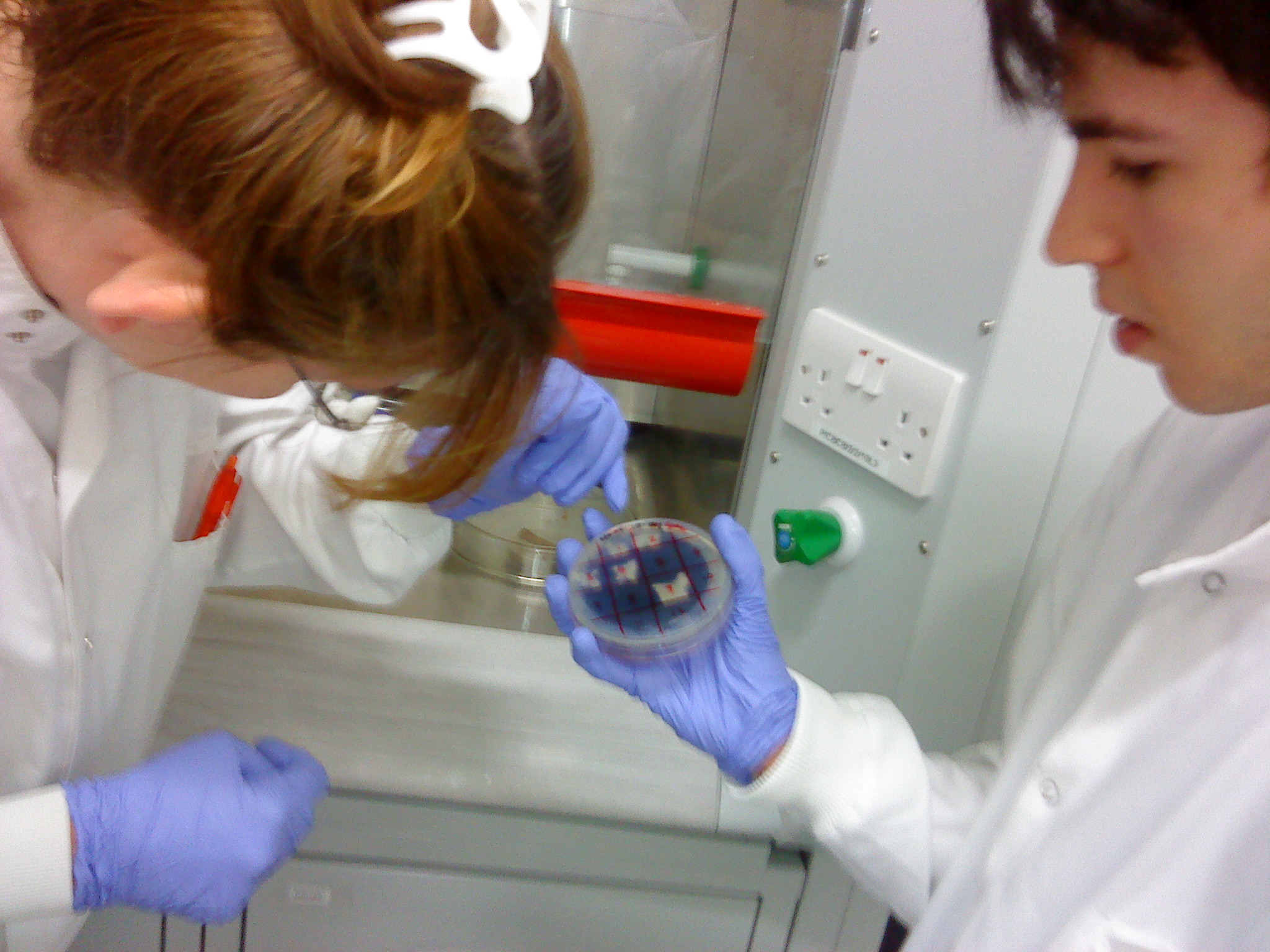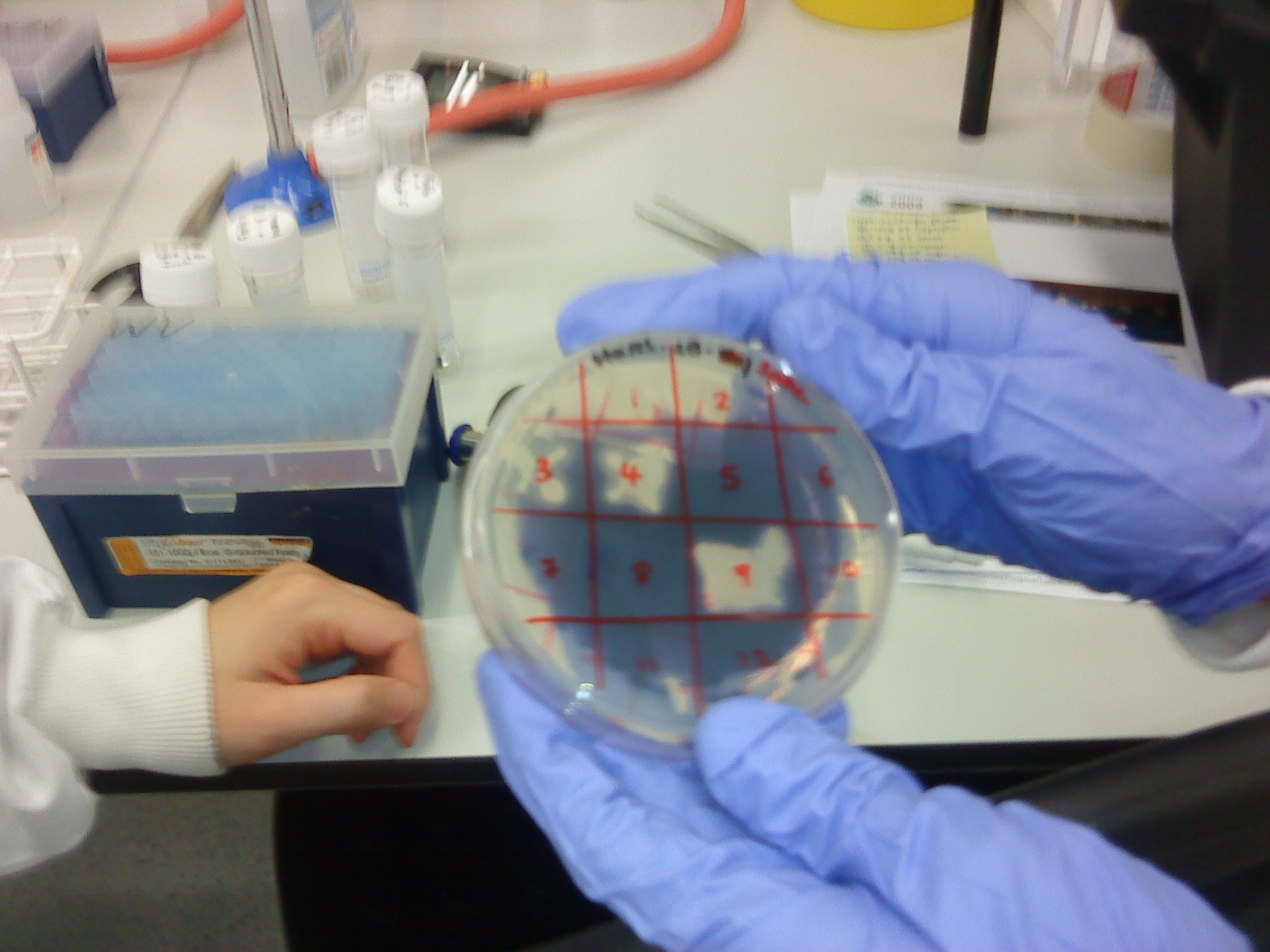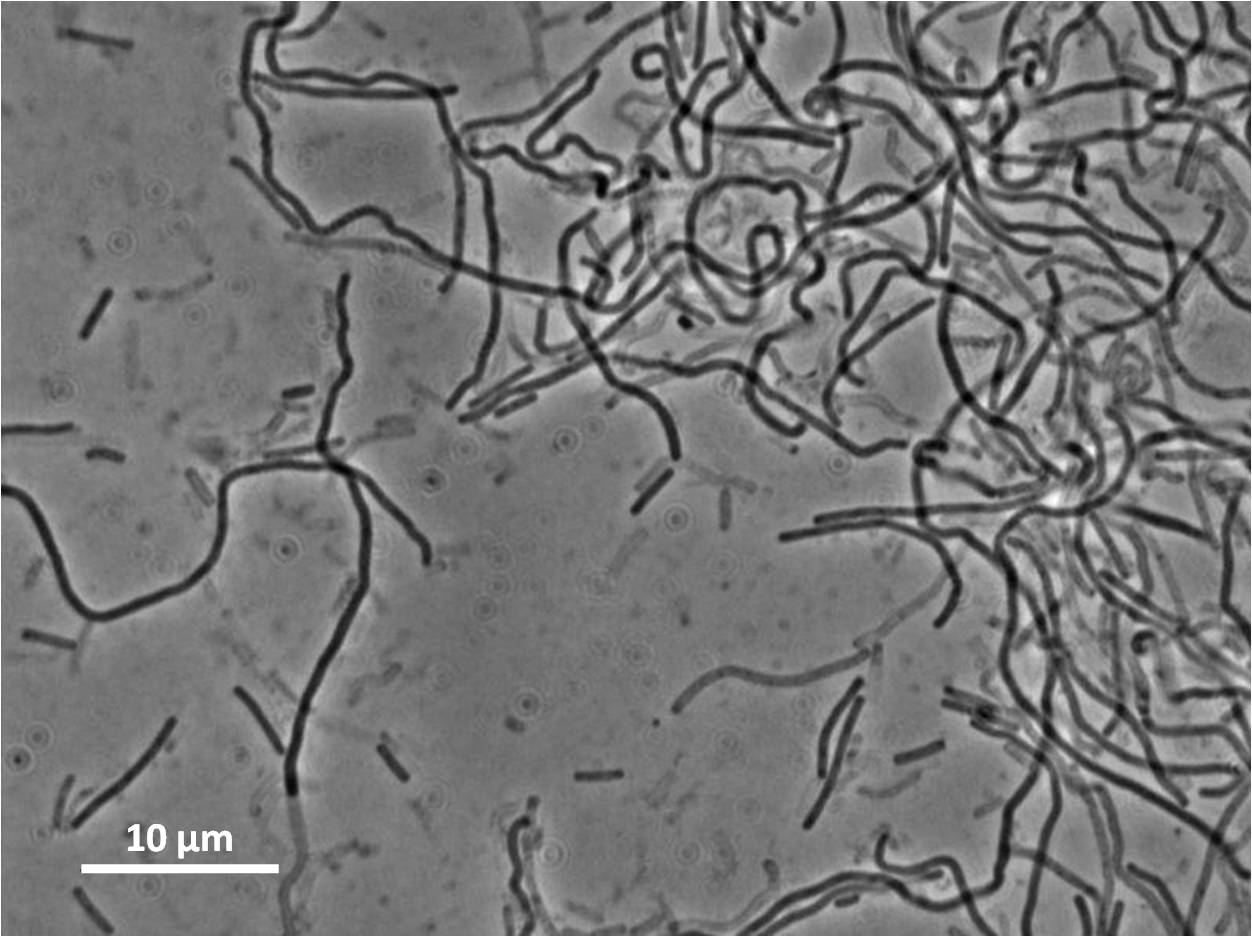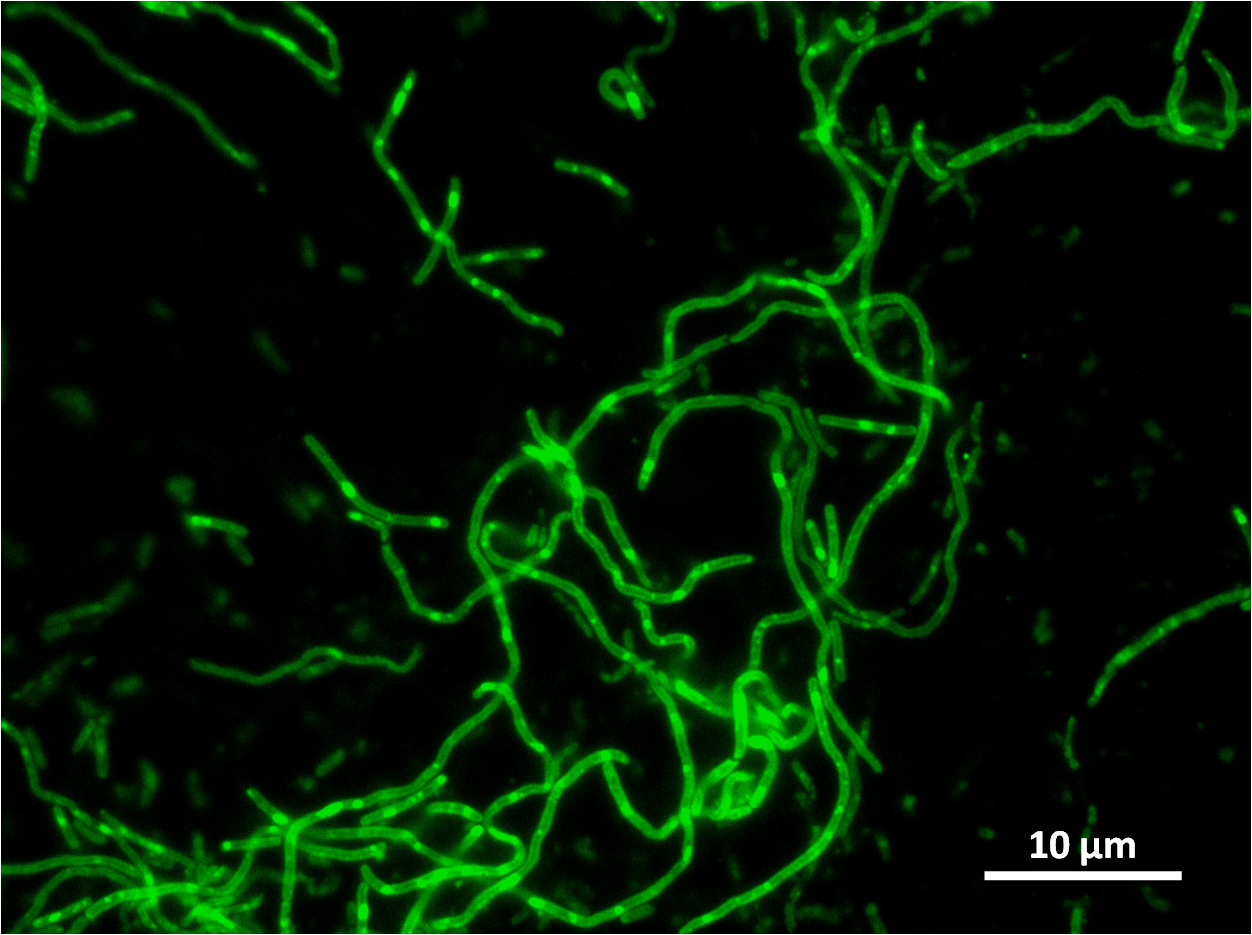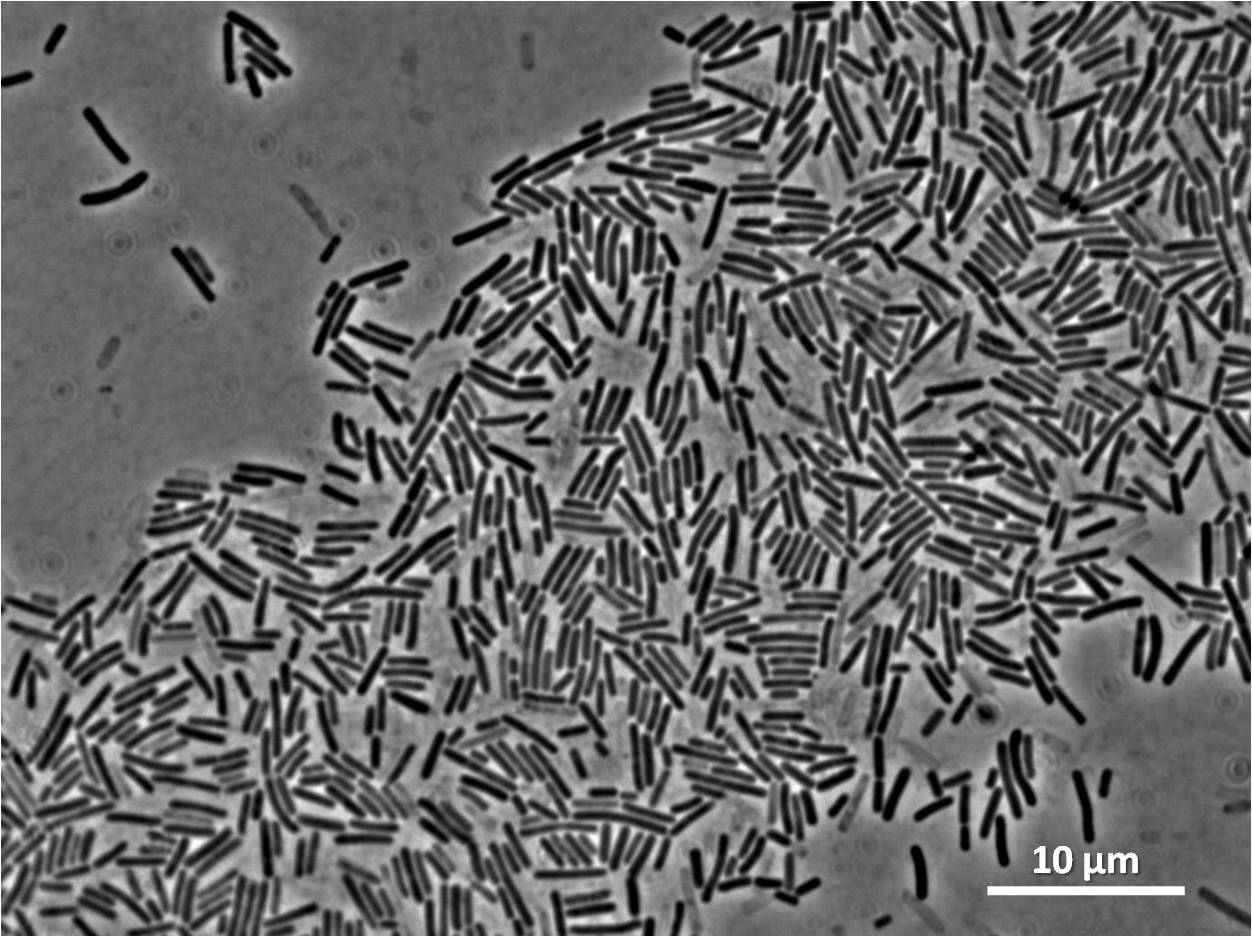Team:Newcastle/26 August 2010
From 2010.igem.org
(Difference between revisions)
(→First transformation of Bacillius subtilis 168 with Prrnb-GFP containing YneA) |
(→Results) |
||
| (2 intermediate revisions not shown) | |||
| Line 10: | Line 10: | ||
===Results=== | ===Results=== | ||
| - | + | Some of our colonies did not have halos, therefore the transformation and integration was successful for these colonies. | |
| + | Below you can see cells from these positive colonies under the microscope. | ||
{| | {| | ||
| Line 19: | Line 20: | ||
|[[Image:Starchplate2.jpg|thumb|250px|centre]] | |[[Image:Starchplate2.jpg|thumb|250px|centre]] | ||
|} | |} | ||
| - | |||
| - | |||
{| | {| | ||
Latest revision as of 01:15, 28 October 2010

| |||||||||||||
| |||||||||||||
Screening Bacillius subtilis transformants
Aim
The aim of the experiment is to identify those colones that have the plasmid integrated at the correct position in the chromosome, which is the amyE locus. Those that have integrated at the correct position will not be able to break down starch, which can be tested by exposing the colonies on the starch plates to iodine.
Results
Some of our colonies did not have halos, therefore the transformation and integration was successful for these colonies.
Below you can see cells from these positive colonies under the microscope.
 
|
 "
"
